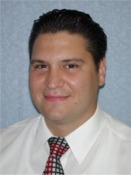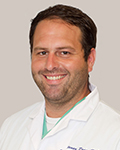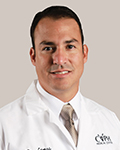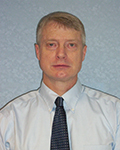Radiology Department
Radiology
The University of Vermont Health Network - Elizabethtown Community Hospital (ECH)’s Radiology Department combines excellence in care with high-quality medical imaging technology. We use all-digital imagining to provide a range of radiology services for diagnosis and treatment. The department is open 24 hours a day for the inpatient unit in Elizabethtown and for both our Elizabethtown and Ticonderoga emergency departments.
ECH Radiology: How We Compare
UVM Heath Network Radiologists read and interpret radiology exams either on-site or through the hospital's secure picture archiving and communications system (PACS). Images are read throughout the day, with radiologists providing immediate consultations for time-sensitive emergencies.
The Radiology Department is certified by the American College of Radiology and the FDA.
Mammography and X-ray technologists are certified by the American Registry of Radiologic Technologists. Ultrasound technologists are certified by the American Registry for Diagnostic Medical Sonography.
The ECH Radiology Department uses a wide range of imaging services used in the diagnosis and treatment of conditions from broken bones to cancer. Learn more about different types of imagining services that we offer below.
Bone Density Scan with DXA
A DXA (Dual-energy X-ray Absorptiometry) is a safe, painless, and quick test that measures bone density and strength. Bone density scans are most often done to screen for osteoporosis or to monitor the body’s response to certain medications that can affect bone health. The DXA unit can provide traditional hip and spine testing, body fat analysis, and tests that can indicate compression fractures.
CT Scan
A CT scan (sometimes called a CAT scan) is a noninvasive medical test that helps physicians diagnose and treat medical conditions. It combines special x-ray equipment with computer technology to produce multiple images of the inside of the body. CT scans of internal organs, bones, soft tissue, and blood vessels provide greater clarity and reveal more detail than x-rays. It is one of the best and fastest tools for studying the chest, abdomen, and pelvis because it provides detailed, cross-sectional views of all types of tissue.
Physicians often use CT exams to:
- Diagnose cancer - tumors can be seen, measured and precisely located;
- Detect, diagnose and treat vascular diseases that can lead to stroke, kidney failure or death - it is commonly used to assess for pulmonary embolism (a blood clot in the lung) and aortic aneurysms (weak spot, with potential for rupture);
- Identify spinal problems and injuries to the hands, feet and other skeletal structures because it can clearly show very small bones and surrounding tissues;
- Quickly identify injuries in cases of trauma
- Monitor patient response to chemotherapy.
Mammogram
Mammogram is a type of x-ray used on the breast to check for breast cancer.
At ECH, our mammograms take place in a private mammography room. We have a Hologic 3D mammography unit which detects 20%-60% more breast cancers than conventional mammography units. Digital technology is used in conjunction with computer-aided detection, which highlights potential abnormalities and indicates areas that the radiologist should scrutinize. All digital images are easily stored so that radiologists can use them for future comparison.
For questions regarding Mammography services, you may contact our office by calling 518-873-3081 or 518-585-3759.
MRI
MRI is a non-invasive radiology imaging exam that uses a powerful magnet, pulsed radio frequency waves, and specialized computer software to produce detailed images of internal organs, soft tissues, and bone.
Physicians often use MRI to better understand:
- Sports injuries
- Heart and lung diseases
- Tumors
- Spinal conditions
- Head and neck conditions, including brain, ears, and eyes
- Digestive organ conditions
- Pelvic conditions
To learn more about MRIs and the services available at ECH, visit our Mobile MRI Unit page.
Ticonderoga – Mondays starting at 9:00 AM
Elizabethtown – Tuesday through Friday starting at 8:00 AM with some evening hours available on Thursdays.
Ultrasound
Ultrasound uses high-frequency sound waves to view structures within the body. Ultrasounds may be performed for many reasons, including general abdominal issues, pelvic imagining (e.g. viewing the prostate), seeing the progress of a pregnancy and development of the fetus, examining a breast lump, and vascular issues (e.g. evaluating blood flow).
X-Ray
X-rays use electromagnetic waves to create pictures of the inside of the body. The most common use of x-ray is to check for broken bones/fractures, but they can also be used to detect other types of conditions in the body. All-digital x-rays can be viewed immediately in the emergency department.
Fluoroscopy is another type of x-ray used to show moving images of the inside of the body. It is used to determine functions of a soft body part, indicating how fluid drains and moves throughout a particular area.
Hours of Operation
All services require a physician's order.
X-Ray:
NO APPONTMENT NECESSARY
Monday - Friday 7:00 AM - 9:00 PM
Saturday and Sunday 7:00 AM - 3:00 PM
APPOINTMENTS REQUIRED FOR THESE SERVICES:
- CT Scan
- Echocardiograms
- MRI
- Ultrasound
- Mammography
- Bone Density
Support & Resources
Call to schedule an appointment: 518-873-9048
Elizabethtown
P (518) 873-3036
F (518) 873-9192
For echocardiograms, please call 518-873-3062.
Ticonderoga
P (518) 585-3758
F (518) 585-3845
For echocardiograms, please call 518-585-3727.







